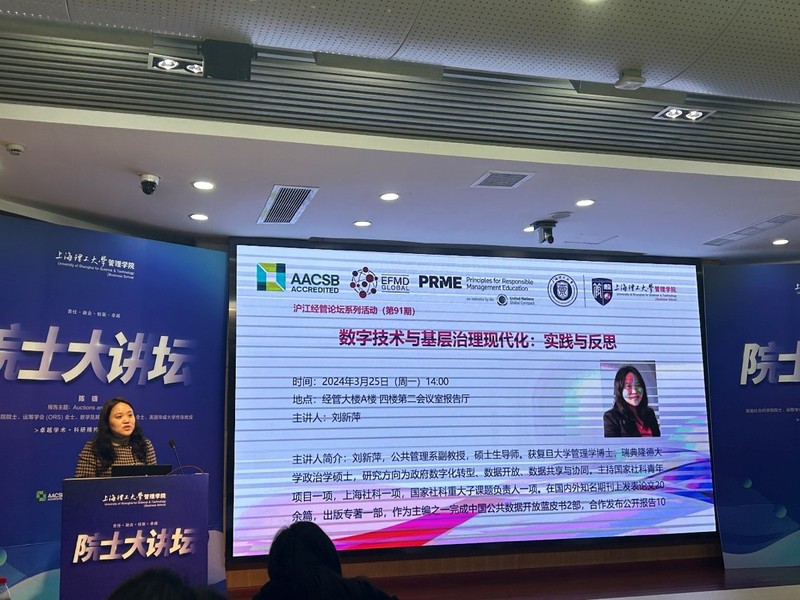On March 25, 2024, Associate Professor Liu Xinping from the Department of Public Management shared a report titled Digital Technology and the Modernization of Local Governance: Practice and Reflection. Graduate students majoring in Public Administration, Management Science and Engineering, and Systems Science, attended the lecture. The lecture was hosted and commented by Associate Professor Li Yanan from the Department of Public Management.
First, the lecture starts with policies released by the central government in recent years, introducing the policy background that local governance needs technological support. Then, it proceeds to report from four aspects: why urban local governance modernization requires digital technology, how technology can make cities better, whether technology has truly made cities better, and reflections and prospects on digital empowerment of urban governance modernization.
Digitalization is pivotal in the transformation of urban development. The presentation highlighted the critical role of technology in early detection, analysis, early warning, and timely intervention in local governance.
Professor Liu engaged the audience with some provoking questions about utilizing data for identifying underprivileged students or families, and assessing production in specific buildings, further discussing the vital role of data in effective governance. Liu also delved into the community's expectations and concerns over digital technology in local governance, advocating for a thoughtful consideration of its necessity, usefulness, and potential harm to avoid a blind technological chase in urban local governance.
Associate Professor Li Yanan contributed to the conversation by emphasizing the importance of aligning theoretical insights with practical governance, particularly regarding computing capacity. She proposed that academic research also needs to strike a balance between methodological sophistication and findings.
Digital technology should serve as a tool for, not the goal of, urban local governance. Its application must be evaluated for its economic viability, sustainability, and holistic contribution to urban development, highlighting technology's role as an enabler rather than the goal.



